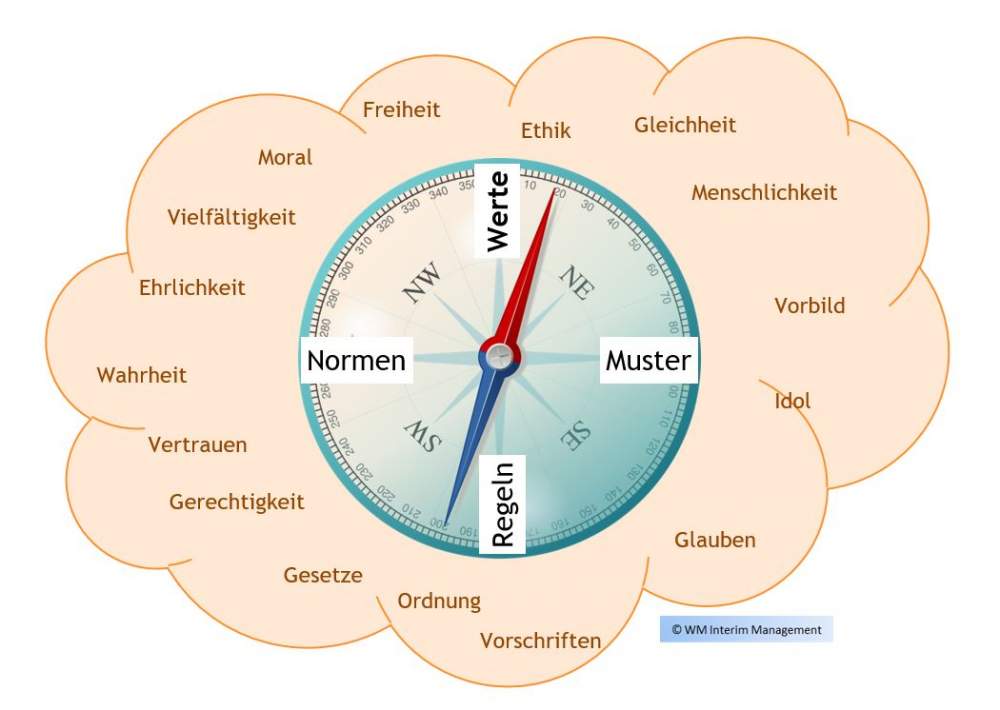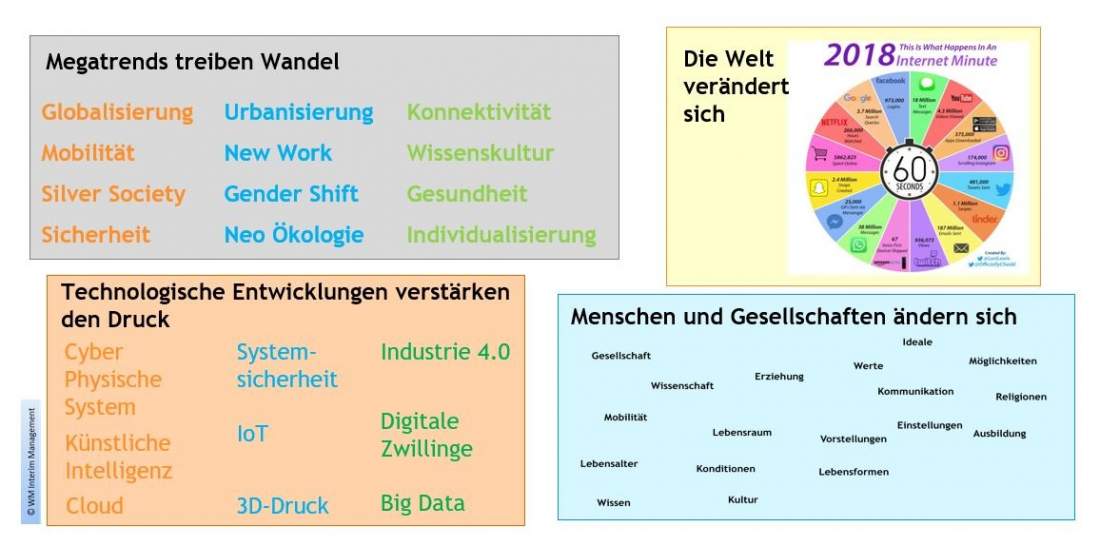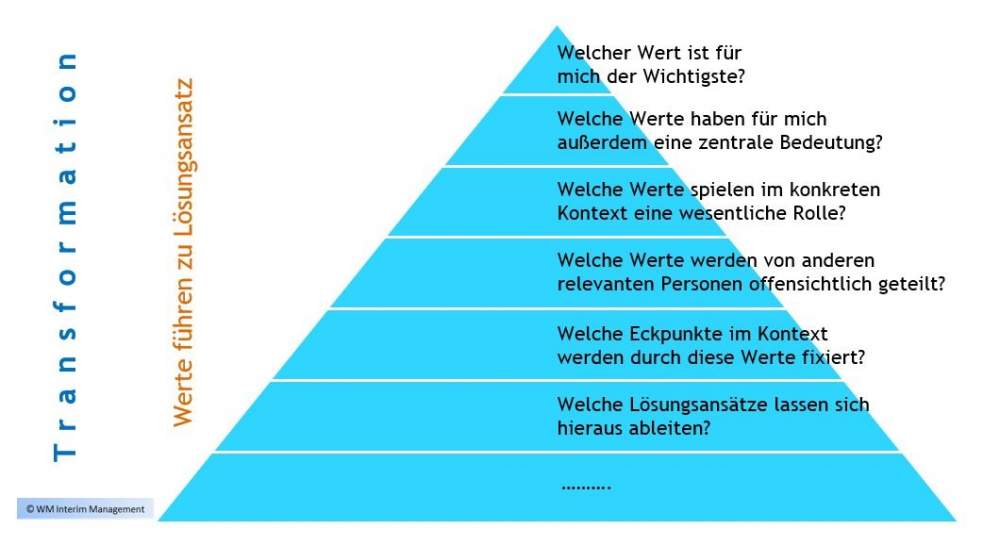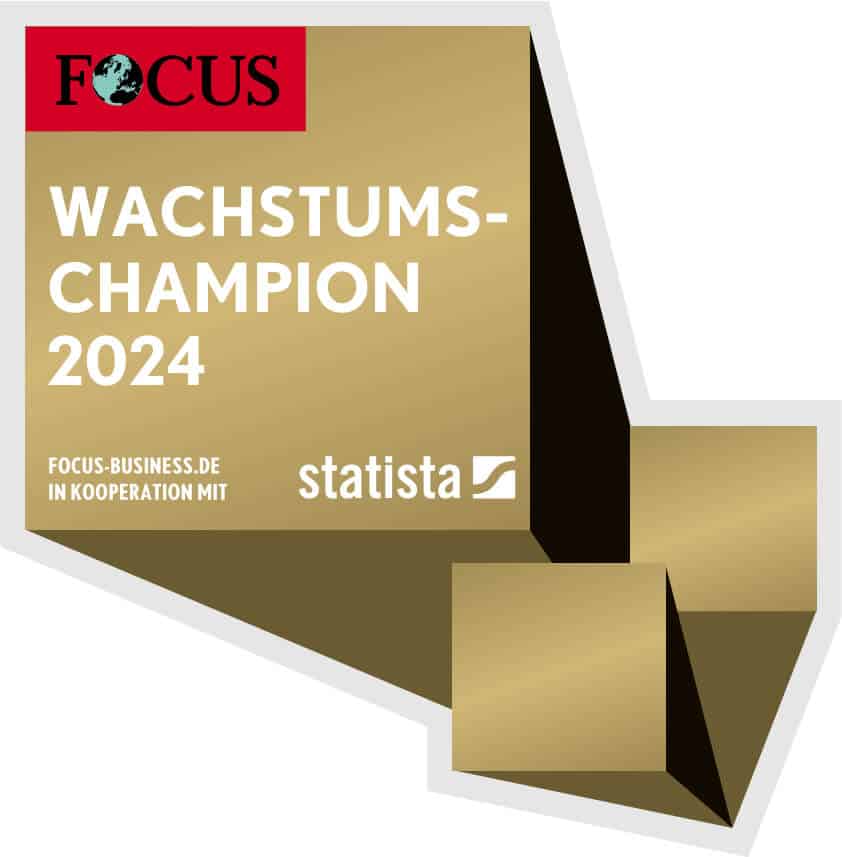There is no doubt that we are living in an age of major transformations: Technology, society, politics, the economy, communication, information, religion, systems, the environment... Change and transformation determine all areas of life. But when everything is on the move, nothing stays the same and there are no "blueprints" or role models for the right path, what can we use as a guide? Values and standards in particular provide important points of reference - but only if they are understood and applied correctly.
The world is changing rapidly and radically: every day brings change and a step further away from the status quo
Disruption! VUCA! Transformation! Upheaval! Change! Change! Digitalization! Industry 4.0!
Not a day goes by without us encountering these and other terms. You would think that they have long since become part of everyday life. And no area of life is exempt from this. We experience this in
- in our immediate environment as well as in society as a whole.
- nationally and globally.
- in politics as in religion.
- in business and technology.
- in communication and information.
- in the environment and health.
It is a unprecedented time of change and transformation - and we are right in the middle of it. We are part of this era and help determine the direction and the path(s). It is up to us, as individuals and as a community, to decide where the transformation journey takes us.
But if everything is in flux, nothing stays the same, everything is new and unprecedented, there is no clear "right or wrong", no "blueprint" or ideal solution, how can we orient ourselves? How can we do it "right" at all?
Values and norms: Value systems tools
Was everything better in the past? Or was it simply different in the past than it is today? Such or similar questions always raise the issue of values. Whether you think something is good or not good, right or wrong, reprehensible or exemplary, it always has to do with our values or value systems. We make judgments on the basis of personal, social or whatever other values. What sounds simple, however, is somewhat more complicated on closer inspection.
Values are Individual and/or joint ideasThe values, qualities and convictions that are important to them and help guide their actions. They develop from different contexts, such as
- History
- Culture
- Social environment
- et cetera.
Values are always an essential component of every model and always have, consciously or unconsciously, the function of orientation. In this respect, they are a kind of "inner compass" for both the individual and the community.

The challenges in times of change
The challenges are diverse, complex and new. And new ones are constantly being added. And they affect everything and everyone:

In short - no stone is left unturned:
- No strategy is safe.
- There is no model that is not called into question.
- The basic principles of the past no longer apply.
- Action and reaction are hardly predictable.
- Causalities are dissolved.
- Patterns of behavior no longer exist.
- The geopolitical situation is also shifting and power structures will look completely different tomorrow than they do today.
- A whole new dimension and complexity of questions and problems (human issues) is before us.
... And yet we still have to face up to these challenges. No "ostrich strategy" or "strategy of sitting it out". In times of change and the associated uncertainty there are two main principles:
There is (still) no really clear solution and nobody knows one!
The biggest mistake is to do nothing and make no decision!
If you do nothing, you will be done with.
Lighthouses reduce risk and provide reliable orientation - just like values and standards
So how can we deal with these diverse, complex issues? When nothing is valid anymore and everything is in question: What can we use as a guide and orientation?
The only possible help here are values or value systems. Whether individually or collectively. Whether socially or personally. Whether in business, politics, society, companies, associations or personal life, ultimately the search for answers can and must always be guided by values.
However, it must always be clear that values do not claim to be absolute and can themselves be called into question or be subject to change. After all, values are not valid in themselves and are not shared equally by everyone. There are certainly conflictual Values, exclusionary and integrative values. Values are culturally determined and depend heavily on individual and social experiences and history.
And yet: values are the points of reference that can be used in times of change and transformation. Values do not promise right and clear solutions, but they support and guide us in the right direction.

Values work like lighthouses in seafaring: they are not the actual destination - and heading straight for them can mean great danger. Nevertheless, they provide reliable orientation about the current position and the direction in which we can continue.
(Cover image: © Ravil Sayfullin | stock.adobe.com)


